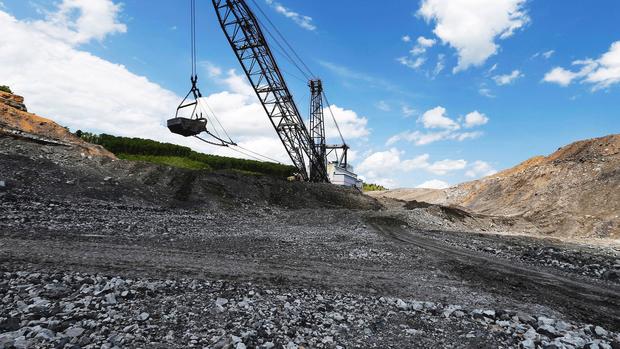Audio: Head of Coal Industry Group Says Trump Order Means New Coal Plants Could Be Built

FILE PHOTO -- The massive Big John dragline works to reshape the rocky landscape in some of the last sections to be mined for coal at the Hobet site in Boone County, West Virginia, U.S. May 12, 2016. REUTERS/Jonathan Ernst/File Photo
I had Jason Bohrer on my radio show today.
Jason is the head of the Lignite Energy Council which, as you might imagine, represents and promotes the state’s coal interests. I wanted to talk with him about President Donald Trump today signing an executive order rolling back a number of Obama administration regulations and restrictions on oil and coal development.
Bohrer said the orders are “returning power to the people and the states” while “taking that power away from unelected bureaucrats.”
He said the rules implemented by the Obama administration, such as the Clean Power Plan, set “unrealistic requirements” which would see “North Dakota shut down its coal plants” while doing “noting to help the climate.”
[mks_pullquote align=”right” width=”300″ size=”24″ bg_color=”#ffffff” txt_color=”#000000″]Supporters of the regulations say coal’s problems come from competition with power sources like solar, wind, and primarily natural gas. “If that were true they wouldn’t fight so hard,” Bohrer said when I asked him about that argument. They wouldn’t support the regulations to shut down coal plants “if they were going to close on their own,” he added.[/mks_pullquote]
Still, many argue that these rules aren’t really coal’s problem. Supporters of the regulations say coal’s problems come from competition with power sources like solar, wind, and primarily natural gas.
“If that were true they wouldn’t fight so hard,” Bohrer said when I asked him about that argument. They wouldn’t support the regulations to shut down coal plants “if they were going to close on their own,” he added.
He said the argument proves that the supporters of these policies “did want to shut down the coal industry and now they can’t.”
Bohrer did admit that there is a “grain of truth” to the argument that coal faces a very competitive market. He said competition from subsidized sources like wind and solar, as well as natural gas, is “making it more difficult to compete.”
But he was quick to add that North Dakota’s coal plants are and have been “more resilient” to those trends due mostly to things like our power plants being located just about on top of the mines which feed them.
Bohrer said the “future is bright” for coal in North Dakota, and brighter still for President Trump’s actions. He said in the short term he’d like to see progress on initiatives such as mining the state’s lignite coal for rare earth metals. He also said that long term we could “absolutely” see a new coal plant built for the first time in a long time, something he argues would set the state up for another “80 years” of economic benefits.
Here’s the full audio of our interview:
[fcc_jw_podcast key=”MvmYIwyt” player-image=”139345″]




